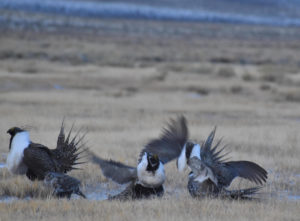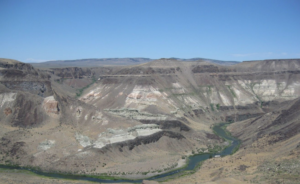For Immediate Release: August 22, 2019
Contacts:
Amy Harwood, Lobos of the Southwest, amy@mexicanwolves.org
Greta Anderson, Western Watersheds Project, (520) 623-1878,
Sandy Bahr, Sierra Club – Grand Canyon (Arizona) Chapter, (602) 999-5790,
Chris Smith, WildEarth Guardians, (505) 395-6177, csmith@wildearthguardians.org
Maggie Howell, Wolf Conservation Center, P: 914-763-2373 x200; Maggie@nywolf.org
Michael Robinson, Center for Biological Diversity, (575) 313-7017,
michaelr@biologicaldiversity.org
TUCSON, Ariz.— Conservation groups condemned the U.S. Fish and Wildlife Service today for the agency’s blanket authorization — which it is not making public, but which conservationists have uncovered — to trap or kill an imperiled Mexican wolf in Arizona for the sake of protecting livestock.
The Fish and Wildlife Service has apparently authorized the trapping and relocation of any wolf, and the killing of one uncollared wolf, but the agency has refused to make the removal order publicly available.
“Punishing wolves for eating the slowest, easiest to get prey in their habitat is just senseless brutality against this key native species,” said Greta Anderson, deputy director of Western Watersheds Project. “It’s insane that we allow ranchers to run their herds in wolf habitat without requiring any proactive measures of protection and then kill the wolves for taking advantage of human carelessness.”
Mexican wolves face a suite of threats, ranging from genetic inbreeding in the wild population to state game agencies’ resistance to the release of adult wolves and bonded packs in Arizona and New Mexico.
The Service is tasked with recovering this species but is bowing to pressure from the livestock industry to remove wolves in response to predation on livestock.
“Killing this endangered animal is totally unjustified and frankly unconscionable,” said Sandy Bahr, chapter director of Sierra Club’s Grand Canyon chapter. “We should expect the agency responsible for recovery of imperiled Mexican wolves — the U.S. Fish and Wildlife Service — to do better by them and seek every way possible to keep these packs intact and protected and not go gunning for them.”
“Removing a native lobo for behaving normally is totally misguided,” said Chris Smith, southern Rockies wildlife advocate at WildEarth Guardians. “This individual wolf may be critical to the genetic recovery of the species, but apparently some non-native cows being raised on public land for private profit are more important in the eyes of U.S. Fish and Wildlife Service.”
“The Wolf Conservation Center has committed nearly 20 years of resources to Mexican gray wolf recovery in partnership with the Fish and Wildlife Service,” said Maggie Howell, executive director of the Wolf Conservation Center. “That our partners are open to delivering this unnecessary blow to lobo recovery is beyond disappointing. Given the species’ precarious status, killing should never be a management tool; and killing in retaliation makes as much sense as executing any random person picked up in the general vicinity of a murder.”
“It’s sickening to know that a critically imperiled wolf may soon be caught in a cruel, excruciating trap or even shot dead,” said Michael Robinson, a senior conservation advocate at the Center for Biological Diversity. “The last thing Mexican wolves need is another federal trapping and killing spree on behalf of the livestock industry.”
Neither the Fish and Wildlife Service nor the U.S. Forest Service requires livestock permittees to take any non-lethal measures to prevent conflicts with wolves on public lands, including our national forests.
###





